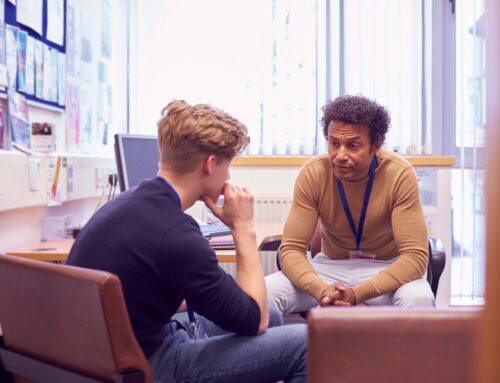Work experience will help you learn.
Work experience is a very important way that we learn and grow. Think about your favourite hobby or sport. Think about the time you have spent doing it, practising it, getting better and discovering new ways to enjoy it. That learning and development happens as a result of the experiences you have had.
 You might hear lecturers or career professionals talk about a learning theory called experiential learning or Kolb’s Learning Cycle. Kolb’s Learning Cycle is a model of learning that focuses on how individuals learn from experiences.
You might hear lecturers or career professionals talk about a learning theory called experiential learning or Kolb’s Learning Cycle. Kolb’s Learning Cycle is a model of learning that focuses on how individuals learn from experiences.
The cycle divides learning into four distinct stages: concrete experience (when we do things); reflection and observation (when we think about how an experience went); abstraction and conceptualisation (when we think about what this experience means and consider how it might change the way that we see the world or behave in the future); and active experimentation (when we apply some of the new ideas to our experience).

You can see that in this model of learning the experiences that we have play a central role. Without the experience the other stages don’t make sense. Experience is everything!
Your work experience gives you the opportunity to learn, grow and develop in a number of different ways. You will learn more about yourself, what you enjoy and what you are good at. Experimenting with different types of experiences will help you to get to know more about your likes, dislikes, values, priorities and strengths. You will also learn more about different types of work. Something that you thought would be very interesting might turn out to be deathly dull on a day-to-day basis – and vice versa.
Work experience is a safe place to experiment.
You can use your time spent volunteering or working in part-time roles and summer jobs as a chance to try new things and to road-test a career option. Just because you are helping out at an after-school club doesn’t mean that you have to commit to a career as a teacher. If something doesn’t feel quite right, have a think about what that might mean. Is it the circumstances, your confidence, your skills or something more central to your personality that means this particular experience (career) is not for you? Learning what doesn’t appeal is often as helpful as learning what does!
Volunteering is a particularly good option for road-testing a career. Volunteers are often given a lot of responsibility and opportunities for training and events that otherwise might not be supported.
Work experience is evidence of your passion.
Having work experience can help to show that you are genuinely interested in that area of work. You will be able to demonstrate that you have given your options some thought and that you are passionate about your chosen career path.
Work experience can help to get you connected.
While you might not be able to volunteer for the CEO of a successful charity, you might find that volunteering at one of their shops will help you to get one step closer to their sphere of influence. You can befriend senior members of the team, read the staff newsletter to find out about new campaigns and attend training events that could put you next to someone who knows the head honcho in recruitment!
Work experience makes you more successful in applications and interviews.
Applicants with work experience outperform those with no work experience. This is likely to be for all of the reasons we have highlighted above. Why wouldn’t an employer prefer a candidate who knows themselves well, knows something about the career they are entering, has experimented in that arena and can demonstrate their passion for the sector? But it is worth mentioning that having work experience, of any kind, simply makes it easier to complete the application and interview stages of recruitment. Employers will ask questions about your experience, knowledge and interest in the job. They are looking for clear examples and evidence of this.
*Extract from ‘You’re Hired! – Graduate Career Handbook’ Tristram Hooley & Korin Grant
Tristram is Professor of Career Education at the University of Derby, involved in teaching and supervision of doctoral students, research and the mentoring of staff. He is the author of The Careers Leader Handbook.





